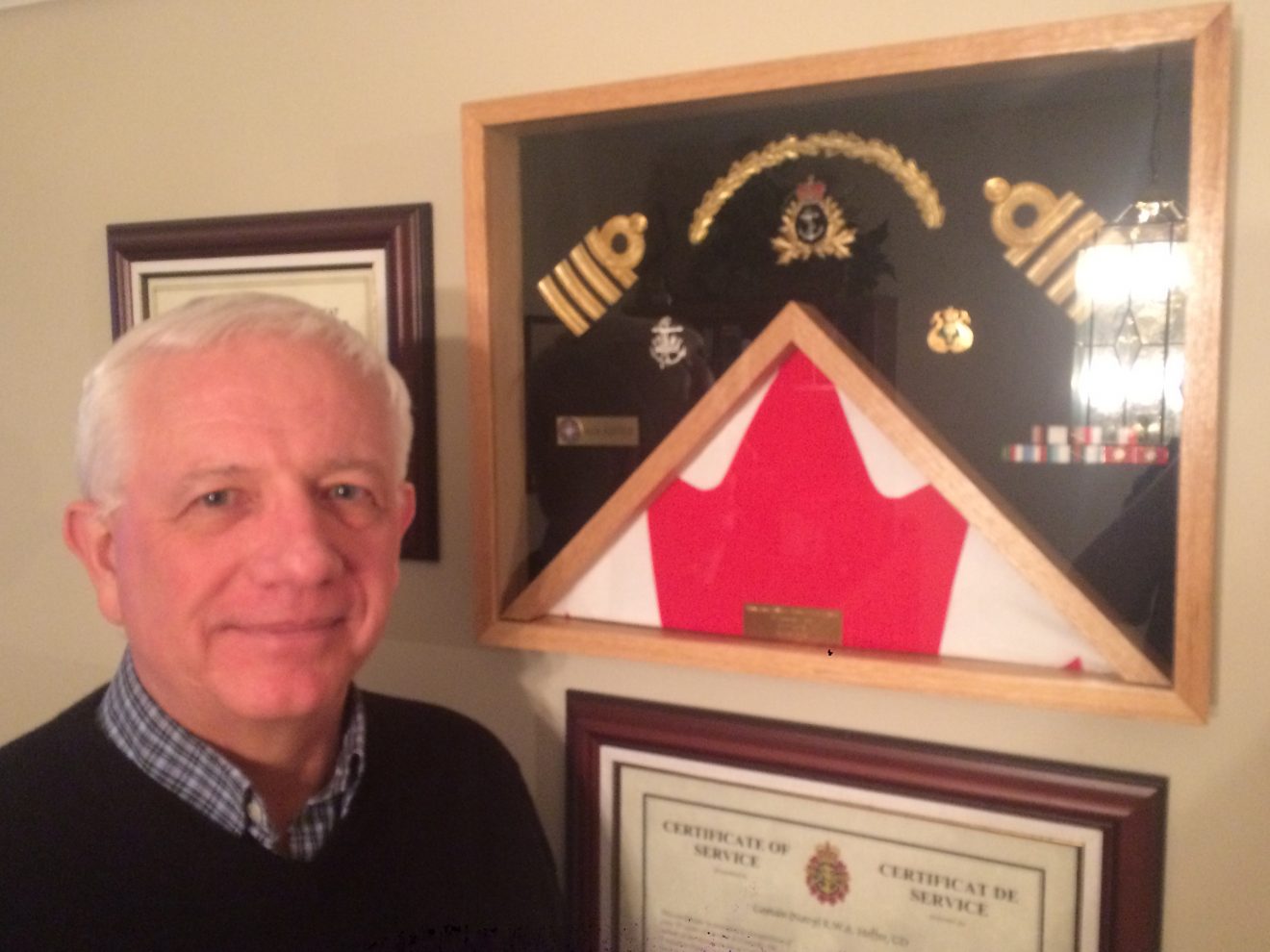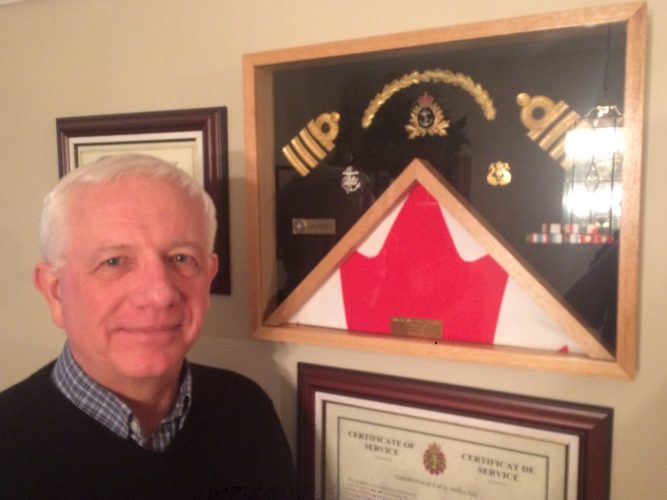Veterans
Veterans with mental illness will have a new place to stay
Society of Atlantic Heroes has secured a three-bedroom apartment in Halifax

caption
Ken Hoffer, founder of the Society of Atlantic Heroes, poses before Navy memorabilia at his home in Dartmouth
caption
Ken Hoffer, president of the Society of Atlantic Heroes, poses before Navy memorabilia at his home in Dartmouth.When veterans come to Halifax from out of town for their counselling appointments, they have nowhere to stay.
The Society of Atlantic Heroes wants to make their lives a little easier.
Last month, the Society purchased a three bedroom apartment in Quinpool Towers in Halifax, but the purchase went unnoticed by local media at the time. Following the model of the Ronald McDonald House, which gives children a place to stay during hospital visits, the apartment will be used to assist veterans and first responders who have to travel over 150 kilometres to Halifax for counselling appointments.
“It is important to recognize that mental illnesses, including PTSD, are complicated and sometimes debilitating ailments,” Society president Ken Hoffer says. “They are just like physical injuries.”
Founded in 2013, the Society of Atlantic Heroes’ mandate is to help veterans, RCMP officers and first responders cope with mental illness. It also helps veterans transition into successful civilian careers.
Hoffer retired in 2012 as a Navy captain after serving for 35 years. For almost 20 years, Hoffer helped veterans with mental illnesses by himself.
He says he was inspired to help veterans with mental illness, including PTSD, after his own experience in 1999, providing humanitarian relief in the rugged mountains and coastal plains of East Timor during clashes between pro and anti-independence groups.
“I saw where PTSD comes from when I was there because of all the violence,” he says. “It was a real eye-opener.”
Hoffer feels it is important to reduce the financial burden on veterans when they have to come from away for counselling.
The apartment was paid for by various corporate sponsors who Hoffer describes as “good guys with deep pockets.”
The apartment has gotten a good reception from Richard Malin from the Centennial 160 Branch (Dartmouth) of the Royal Canadian Legion, an organization that supports veterans and provides services to the communities they are located in.
“I think it is a very good idea,” said Malin over the phone. “Those guys need help; we have to be our brother’s keeper.”
In addition to the apartment, Hoffer has plans to expand the programs to include a bigger facility to serve more clients. He wants a 30 bedroom facility with therapists, a walk-in clinic and conference rooms. He says it would be a good place for counselling and socializing.
Despite these plans, Hoffer feels that all parties need to get together to find a permanent solution for PTSD and other mental illnesses among veterans.
“It’s time for an adult conversation in a forum to get a national strategy and appropriate funding to help turn this around,” he says, pointing to the recent tragedy involving the Desmond Family in Upper Big Tracadie.
“We knew the potential was there,” said Hoffer. “We need an organization that could have saved them. We need quick responses and it needs to be cost-effective.”
The apartment will be furnished and it should be open sometime this year.


S
Sam Brace